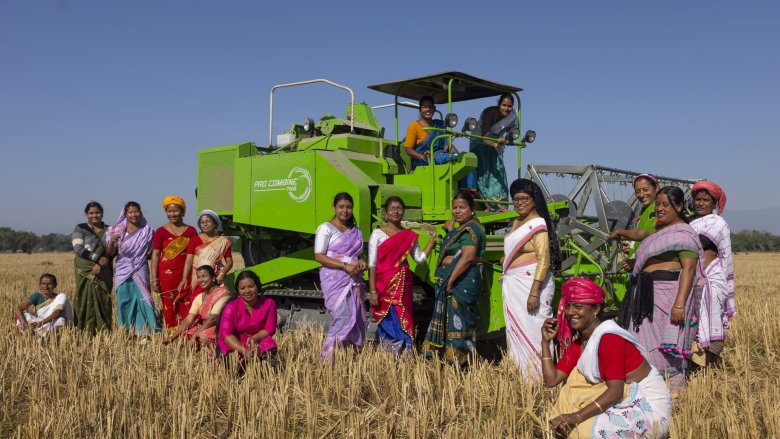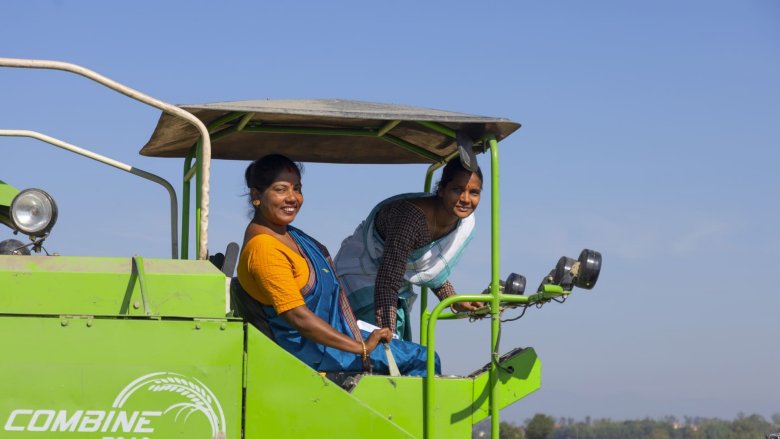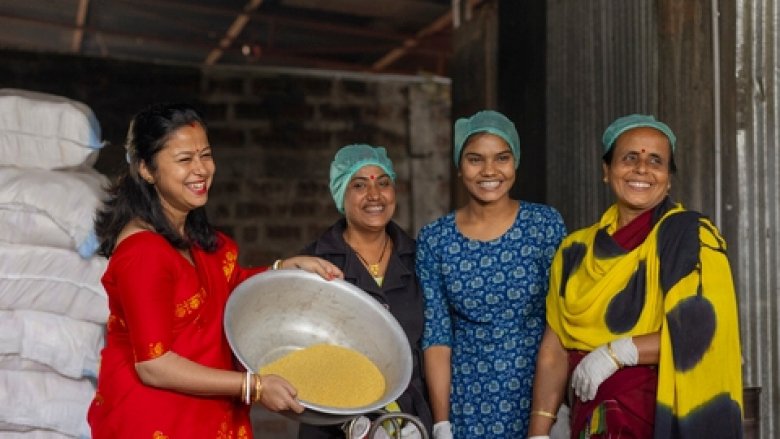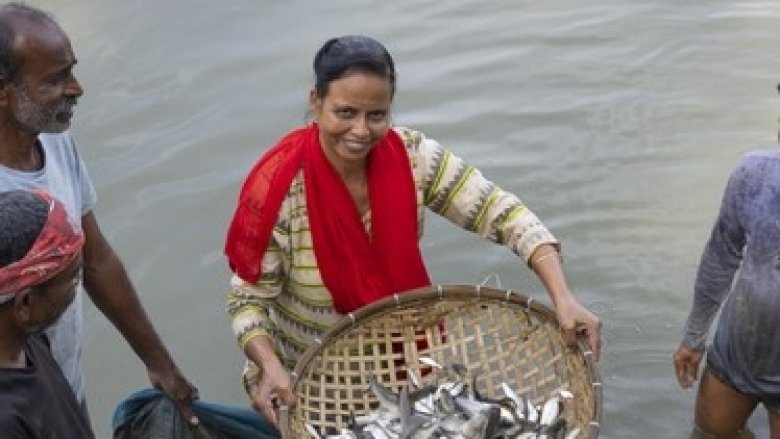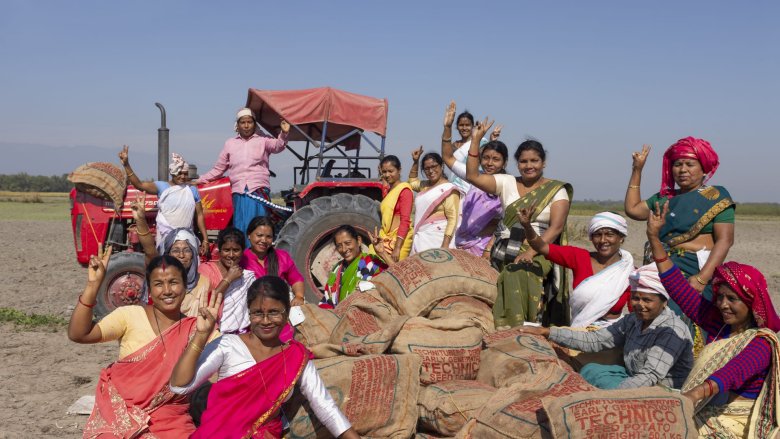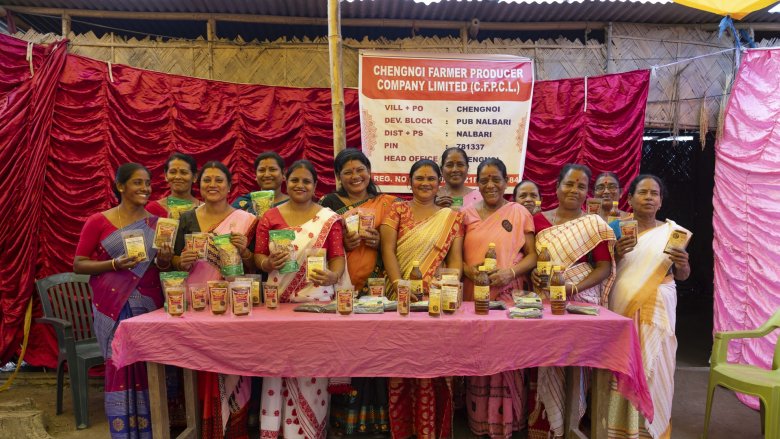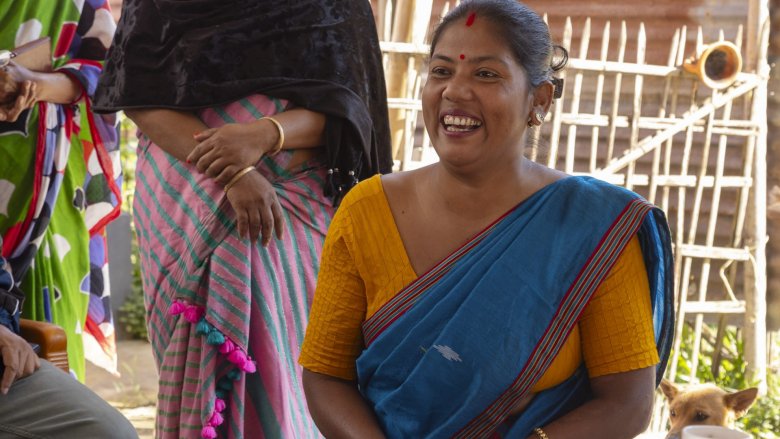On a pleasant December morning, 37-year-old farmer Kamal Kumari, set out from her home to the fields bordering her village in the northeastern state of Assam. As she walked through vast paddy and mustard fields, she could see the faint outline of the majestic Himalayas in the distant horizon. Kamal was joined by other women farmers, and together they reached a large plot of land. Taking charge of the bright yellow seeder machine, Kamal climbed onto the driver's seat, while her companions filled the back of the tiller with potato seeds. Throughout the day, they ploughed through the field planting the potato seeds.
These women farmers are members of the Joyomoti Farmer Producer Company Limited, an all-women shareholder company, of 435 members from 25 villages in the Sonitpur district of Tezpur, Assam. They largely engage in cultivation, growing paddy, pumpkin, mustard, and other vegetables throughout the year.
"Previously, we would work on our individual plots of land and sell our produce after meeting our own needs. The income we earned was just enough to sustain our families,” say the women farmers. “Now that we have come together as a Company, we cultivate crops based on market demand and earn better rates and share the profits. Our incomes have also increased two to three-fold."
In 2022, their hard work paid off when a multinational company offered them a buy-back contract to cultivate potatoes. After successfully selling the potatoes, their Farmer Producer Company (FPC) made a profit of around Rs. 20 lakhs, which was distributed among the 52 participating farmers. Kamal Kumari, the chairman of the FPC proudly states, “We have always been farmers, but now we are agripreneurs with our own Company.”
